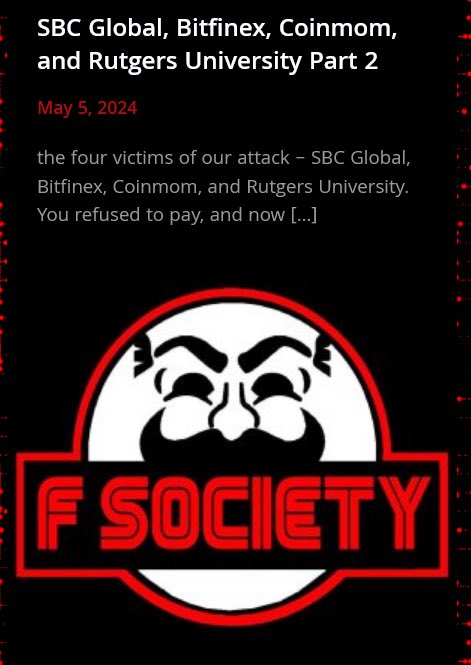Bitcoin
The History of Bitcoin

Bitcoin is a decentralized digital currency that was created in 2009 by an anonymous individual or group of individuals known as Satoshi Nakamoto. The identity of Satoshi Nakamoto is still unknown, and the concept of Bitcoin has been shrouded in mystery since its inception.
The first mention of Bitcoin can be traced back to a whitepaper published in 2008 by Satoshi Nakamoto, in which the concept of a decentralized digital currency was introduced. The whitepaper described a new electronic cash system that would allow for secure, direct transactions without the need for a central authority.
On January 3, 2009, the first block of Bitcoin, known as the Genesis Block, was mined. This marked the beginning of the Bitcoin blockchain, a decentralized public ledger that records all Bitcoin transactions.
In the years following the creation of Bitcoin, the cryptocurrency gained a small, but dedicated, following. However, it was not until 2013 that Bitcoin began to gain mainstream attention. This was largely due to a number of high-profile media stories, as well as a dramatic increase in the price of Bitcoin.
In 2013, the price of Bitcoin soared from around $13 to over $1,100, making it one of the most profitable investments of the year. This surge in price attracted a wave of new investors and speculators, and Bitcoin became a hot topic in the financial world.
Mt. Gox Exchange Hack
Since its inception, Bitcoin has faced a number of challenges. The most significant of these was the collapse of the Mt. Gox exchange in 2014, which resulted in the loss of millions of dollars worth of Bitcoin. This event shook the confidence of many investors and led to a sharp decline in the price of Bitcoin.
Mt. Gox was a cryptocurrency exchange based in Japan that was launched in 2010. At its peak, it was the largest Bitcoin exchange in the world, handling over 70% of all Bitcoin transactions.
In February 2014, Mt. Gox announced that it had suffered a major hack and had lost approximately 850,000 Bitcoins belonging to its customers. The value of the lost Bitcoins at the time was around $450 million. The hack was one of the largest in the history of Bitcoin and had a significant impact on the cryptocurrency market.
The hack and subsequent collapse of Mt. Gox shook the confidence of many Bitcoin users and led to a sharp decline in the price of the cryptocurrency. It also raised concerns about the security of Bitcoin exchanges and the ability of these platforms to protect the assets of their customers.
Bitcoin Cash
As a result of long-standing debate within Bitcoin community in 2017 about how to scale the Bitcoin network to meet the increasing demand, Bitcoin Cash was created. A group of influential members of the Bitcoin community, led by Roger Ver and Jihan Wu, proposed a solution called a “block size increase.” This solution would have increased the size of the blocks on the Bitcoin blockchain, allowing for more transactions to be processed in each block. However, this proposal was met with resistance from other members of the community, who argued that it would centralize the network and make it more vulnerable to attacks.
As a result of this disagreement, the group of proponents of the block size increase decided to create their own version of the Bitcoin blockchain, called Bitcoin Cash. Bitcoin Cash increased the block size to 8 MB, allowing for more transactions to be processed in each block.
The hard fork that created Bitcoin Cash was controversial, and it led to a split in the Bitcoin community. Some members of the community supported the creation of Bitcoin Cash, while others opposed it and continued to support the original Bitcoin blockchain. Today, both Bitcoin and Bitcoin Cash continue to exist as separate cryptocurrencies, with their own communities and markets.
Bitcoin Today
Despite these challenges, Bitcoin has continued to grow and evolve. Today, it is considered to be the most successful and well-known cryptocurrency, with a market capitalization of over $319 billion (As of January 5, 2022). Bitcoin is used by millions of people around the world and is accepted by a growing number of merchants and businesses.
The future of Bitcoin is uncertain, but it has proven to be a resilient and innovative technology that has the potential to revolutionize the financial industry. Only time will tell what the future holds for Bitcoin and the world of cryptocurrency.
Bitcoin
Telecom Giant Vodafone Bringing Crypto to the Masses Via SIM Cards

The major telecom company Vodafone has unveiled an ambitious plan to integrate cryptocurrency wallets directly into the SIM cards used by mobile phones on its network. This cutting-edge move aims to make blockchain technology and crypto easily accessible to millions of smartphone users worldwide.
What’s Happening?
Vodafone, one of the largest mobile operators based in the UK, intends to combine crypto wallets with the subscriber identity module (SIM) cards inside phones. SIM cards are little chips that allow mobile devices to connect to a carrier’s network.
By embedding a crypto wallet into these ubiquitous SIM cards, Vodafone wants to introduce blockchain and virtual currency technology to the masses through the smartphones we all use daily.
The Bigger Blockchain Picture
This crypto SIM integration is part of Vodafone’s bigger blockchain strategy. The company has developed its own “PairPoint Digital Asset Broker” platform to enable secure digital identities and transactions across different blockchains.
Vodafone’s blockchain lead David Palmer emphasized in an interview that mobile phones are the main way billions access digital services and commerce. So partnering blockchain with SIM card tech is crucial for widespread adoption.
By 2023, there will be over 8 billion mobile phones in use globally. And estimates suggest crypto wallets on smartphones could reach 5.6 billion by 2030 as digital money goes mainstream.
Financial Restructuring
The crypto wallet announcement comes as Vodafone seeks to restructure its finances and raise billions in new funds through debt offerings and loans over the next couple years.
The company plans to take on $2.9 billion in total debt, including $1.8 billion in direct loans. Some of this financial overhaul relates to issues at Vodafone’s Indian subsidiary Vodafone Idea Ltd.
While navigating these monetary hurdles, Vodafone still sees major opportunities in emerging technologies like blockchain and aims to be an innovator helping drive mainstream crypto adoption through the SIM card strategy.
Bitcoin
No Evidence of Hack, Says Bitfinex CTO Amid Ransomware Gang’s Allegations

In the world of cybersecurity, claims of data breaches can cause significant concern and speculation. Recently, a ransomware group named FSOCIETY claimed to have successfully hacked several organizations, including the cryptocurrency exchange Bitfinex. However, Bitfinex’s Chief Technology Officer (CTO), Paolo Ardoino, has dismissed these rumors, stating that a thorough analysis of their systems revealed no evidence of a breach.
According to Ardoino, who is also the CEO of Tether, less than 25% of the email addresses allegedly stolen from Bitfinex’s servers match legitimate users. This casts doubt on the validity of FSOCIETY’s claims regarding the supposed hack.
The ransomware group, styled after the fictional hacking group from the TV show “Mr. Robot,” claimed to have breached several victims, including Rutgers University, consulting firm SBC Global, and a cryptocurrency exchange they referred to as “Coinmoma,” which is likely a misspelling of Coinmama.
Ardoino expressed skepticism about the group’s claims, stating that if they had indeed hacked Bitfinex, they would have demanded a ransom through the exchange’s bug bounty program, customer support channels, emails, or social media accounts. However, Bitfinex received no such requests from FSOCIETY.
Furthermore, Ardoino shared a message from a security researcher suggesting that the real motivation behind the alleged hacks might be to promote FSOCIETY’s ransomware tools, which they reportedly sell access to in exchange for a subscription fee and a commission on stolen profits. Ardoino questioned the group’s need to sell their tools for $299 if they had truly hacked a major exchange like Bitfinex.
It’s worth noting that Bitfinex has previously fallen victim to a significant hack in 2016, resulting in the theft of a substantial amount of Bitcoin. Two individuals, including crypto rapper ‘Razzlekhan,’ pleaded guilty to money laundering charges in connection with that incident.

While the claims made by FSOCIETY have yet to be verified by the alleged victims, Bitfinex’s CTO remains firm in his stance that no breach has occurred. As cybersecurity threats continue to evolve, it is crucial for organizations to remain vigilant and take proactive measures to protect their systems and users’ data.
Bitcoin
Indian Police Seize 268 Bitcoins Worth $17 Million in Crypto Bust

Indian authorities have seized a large sum of bitcoins from a resident of Haldwani, a city in the northern Indian state of Uttarakhand. The seized cryptocurrency stash of 268 bitcoins is worth around $17 million at current prices.
The Enforcement Directorate (ED), a law enforcement agency that investigates financial crimes, carried out the bitcoin seizure. They arrested Parvinder Singh from his home in Haldwani after a raid prompted by information from US authorities.
Singh is allegedly part of an international drug trafficking syndicate called “The Singh Organization.” The criminal group used dark web marketplaces like Silk Road to sell drugs in the US, UK and other European countries.
To hide their illegal activities, the syndicate laundered the drùg money by converting it into bitcoins and other cryptocurrencies. ED officials said Singh and his associates received around 8,488 bitcoins over the years from their drùg sales on the dark web.
The bitcoin seizure was a rare collaboration between Indian and US law enforcement agencies. American officials have been investigating Singh and his accomplice Banmeet Singh for their roles in the international drùg cartel.
Cryptocurrencies like bitcoin are popular among criminals due to the anonymity they provide. However, this case shows authorities are getting better at tracing illegal crypto transactions and bringing the perpetrators to justice.
The investigation is still ongoing, and more arrests and seizures are expected as officials unravel the entire money laundering operation of The Singh Organization.
-

 Altcoins4 years ago
Altcoins4 years agoProject Review: Pi Network, a New Scam Project in Town
-

 Bitcoin4 years ago
Bitcoin4 years agoBitcoin Worth $1.2M Seized From Arrested Indian Hacker
-

 Altcoins5 years ago
Altcoins5 years agoReview: Play Arcade Games Inside ARK Wallet And Win Some Free Cryptocurrency
-

 Blockchain5 years ago
Blockchain5 years agoA Full Review: Utopia A New Decentralized P2P Blockchain
-

 Bitcoin5 years ago
Bitcoin5 years agoAnother Exit Scam: NovaChain Shuts Down
-

 Exchanges5 years ago
Exchanges5 years agoCrex24 Will Require KYC Verification
-

 Bitcoin5 years ago
Bitcoin5 years agoJohn McAfee Has Gone Missing
-

 Altcoins5 years ago
Altcoins5 years agoElrond Partners With ChainLink


















